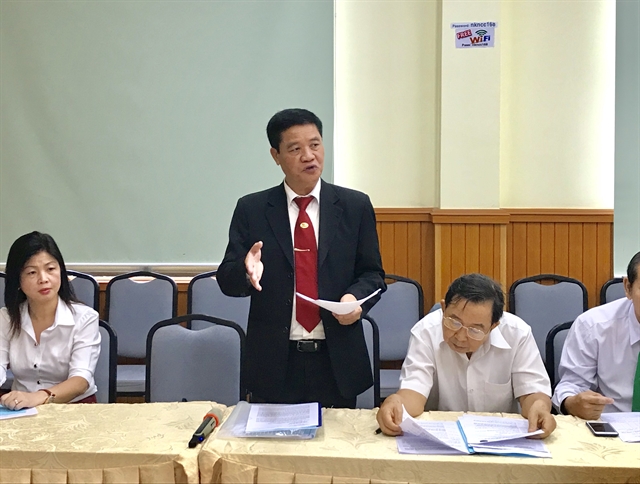Traditional taxi firms have demanded that app-based taxis with less than nine seats should be treated the same as them to “ensure fairness and transparency”.

Traditional taxi companies have demanded that app-based taxis with less than nine seats should be treated the same as them to “ensure fairness, transparency and the same responsibilities towards customers.”
They made this proposal at a conference in HCM City on Aug 22.
If accepted by authorities, all vehicles will have to put up the sign ‘TAXI CAR’ on the car glass, list full information on the vehicle as prescribed and carry a ‘TAXI’ sign on the roof.
This recommendation has also been made in a draft decree by the Ministry of Transport on conditions for the automobile transport business.
Speaking at the meeting, Truong Dinh Quy, deputy general director of Vinasun Corporation, said: “Ride hailing firms like Grab did not comply with Decision 24 on the pilot scheme for ride-hailing services, resulting in violation of legal regulations governing ride-hailing transport operations.”
Huynh Thi Le Thuy, deputy general director of the Representative Office of the Ministry of Justice in HCM City, said it was vital to ensure cars booked through ride-hailing applications are managed in the same way as taxis.
It was also important to create a level playing field between traditional taxi firms and apps like Grab, she said.
“Vietnamese enterprises should not lose competition rights in the domestic market due to unreasonable regulations,” she said.
At the end of last year a HCM City court ordered Grab to pay VND4.8 billion (US$210,300) in compensation to Vinasun.
Vinasun blamed Grab as the sole reason for its earnings drop since its entry into Viet Nam.
The court also found Grab guilty of predatory pricing and abusing the transport ministry’s Decision 24 on piloting contracted passenger transportation.
Grab claimed to be a technology firm but Vinasun refuted this, saying it was a taxi company with a large number of drivers.
In Southeast Asia, the rise of ride-hailing companies like Grab and Go-Jek has shaken up urban transportation and caused traditional taxi operators to lose market share.
Flush with money and technology, ride-hailing innovators have been able to attract new users with convenience and low fares.
Grab came to Viet Nam in 2014. Competition has since become intense with several local players and Indonesia’s Go-Jek entering the fray.
The conference was not attended by Grab executives.
Other topics discussed at the event included technology application in inland waterway management and solutions to improve its efficiency and legal issues related to the application of digital technologies in aviation. — VNS





